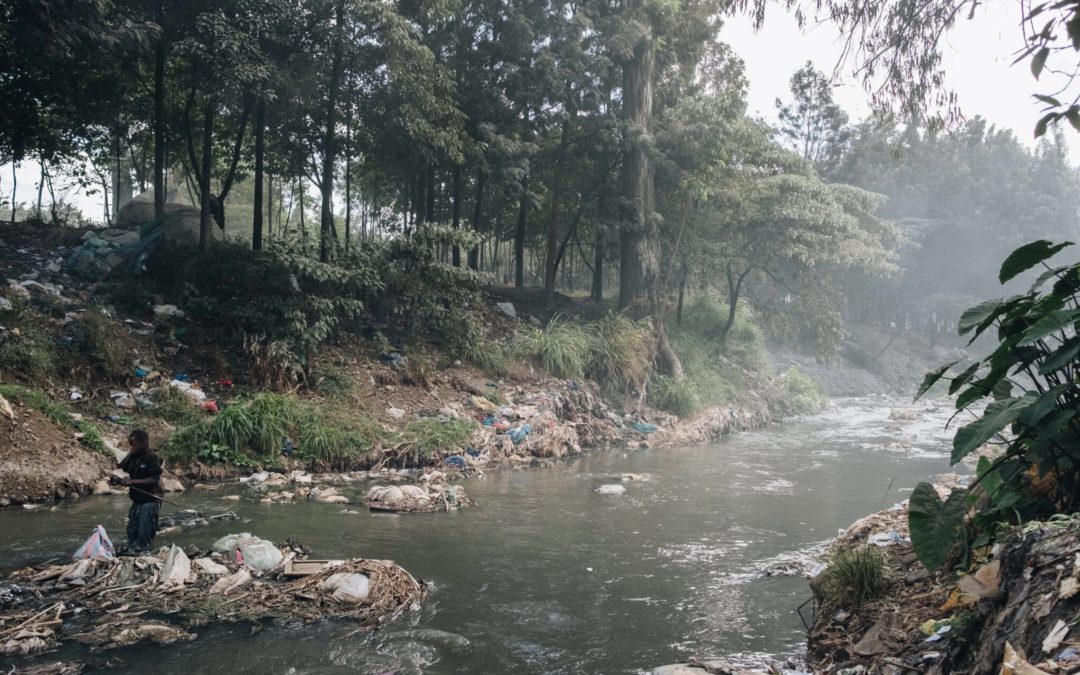SOURCE: The New York Times
DATE: August 30, 2020
SNIP: Confronting a climate crisis that threatens the fossil fuel industry, oil companies are racing to make more plastic. But they face two problems: Many markets are already awash with plastic, and few countries are willing to be dumping grounds for the world’s plastic waste.
The industry thinks it has found a solution to both problems in Africa.
According to documents reviewed by The New York Times, an industry group representing the world’s largest chemical makers and fossil fuel companies is lobbying to influence United States trade negotiations with Kenya, one of Africa’s biggest economies, to reverse its strict limits on plastics — including a tough plastic-bag ban. It is also pressing for Kenya to continue importing foreign plastic garbage, a practice it has pledged to limit.
Plastics makers are looking well beyond Kenya’s borders. “We anticipate that Kenya could serve in the future as a hub for supplying U.S.-made chemicals and plastics to other markets in Africa through this trade agreement,” Ed Brzytwa, the director of international trade for the American Chemistry Council, wrote in an April 28 letter to the Office of the United States Trade Representative.
Kenya, like many countries, has wrestled with the proliferation of plastic. It passed a stringent law against plastic bags in 2017, and last year was one of many nations around the world that signed on to a global agreement to stop importing plastic waste — a pact strongly opposed by the chemical industry.
The chemistry council’s plastics proposals would “inevitably mean more plastic and chemicals in the environment,” said Griffins Ochieng, executive director for the Centre for Environmental Justice and Development, a nonprofit group based in Nairobi that works on the problem of plastic waste in Kenya. “It’s shocking.”
The plastics proposal reflects an oil industry contemplating its inevitable decline as the world fights climate change. Profits are plunging amid the coronavirus pandemic, and the industry is fearful that climate change will force the world to retreat from burning fossil fuels. Producers are scrambling to find new uses for an oversupply of oil and gas.
Pivoting to plastics, the industry has spent more than $200 billion on chemical and manufacturing plants in the United States over the past decade. But the United States already consumes as much as 16 times more plastic than many poor nations, and a backlash against single-use plastics has made it tougher to sell more at home.
In 2019, American exporters shipped more than 1 billion pounds of plastic waste to 96 countries including Kenya, ostensibly to be recycled, according to trade statistics. But much of the waste, often containing the hardest-to-recycle plastics, instead ends up in rivers and oceans.
And after China closed its ports to most plastic trash in 2018, exporters have been looking for new dumping grounds. Exports to Africa more than quadrupled in 2019 from a year earlier.
The plastics industry’s proposals could also make it tougher to regulate plastics in the United States, since a trade deal would apply to both sides.
Last year, Kenya was one of many countries around the world that signed on to a global agreement to stop importing plastic waste — a pact strongly opposed by the chemical industry. Emails reviewed by The Times showed industry representatives, many of them former trade officials, working with U.S. negotiators last year to try to stall those rules.
Royal Dutch Shell’s 386-acre plastics plant outside Pittsburgh is billed as the anchor for a new petrochemical hub in Appalachia, a region reeling from the collapse of the coal industry. Plants like these have revolutionized the plastics industry by turning fracked natural gas into the manufacturing material for millions of plastic bottles, bags, clamshell containers, drinking straws and a parade of other products, tapping into a seemingly endless supply of cheap shale gas from America’s booming oil and gas fields. Among local communities, the plants have raised air pollution concerns.
In Appalachia, Texas and nationwide, almost 350 new chemical plants are in the works, according to an industry tally, together representing oil companies’ life-or-death bet on plastics as the future.
Exxon Mobil has forecast that global demand for petrochemicals could rise by nearly 45 percent over the next decade, significantly outpacing global economic growth and energy demand. Most of that would come from emerging markets.
The American Chemistry Council’s April 28 letter to the trade representative’s office laid out the group’s vision. Kenya’s growing ports, railways and road networks “can support an expansion of chemicals trade not just between the United States and Kenya, but throughout East Africa and the continent,” Mr. Brzytwa wrote.
To foster a plastics hub, he wrote, a trade deal with Kenya should prevent the country from measures that would curb plastic manufacture or use, and ensure Kenya continues to allow trade in plastic waste, demands that experts said were unusual and intrusive.

